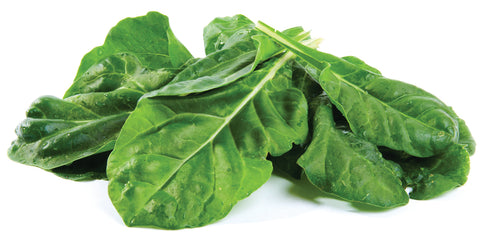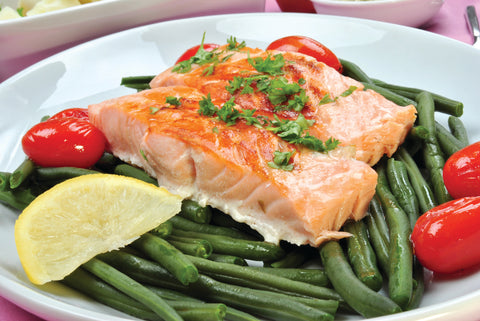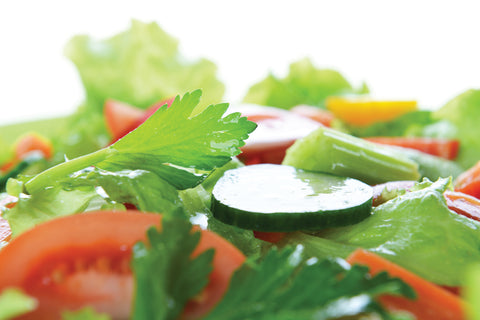By Dr. William Franke
When it comes to healthy bones, the first nutrient to cross almost everybody’s minds is calcium – and for good reason. Calcium is by far the most prevalent mineral in your bones (and teeth). And you need to keep up a steady supply, in just the right amount, to ensure your body has enough to maintain a healthy skeleton. After all, about 99% of the calcium in our body is stored in our teeth and bones, and this essential mineral plays a crucial part keeping our skeletons structurally sound.
But, as we’re seeing more and more, calcium can’t work alone. In fact, without a band of supportive nutrients, calcium – from your diet or supplements – may not be able to do its job at all. Its top-level assistants include magnesium and vitamins D and K, each providing direct support for building and maintaining healthy bones.
Magnesium Maintenance
Did you know that more than 60% of the magnesium in your body is stored in your bones? This essential mineral plays a key role in bone metabolism (along with more than 300 other life-sustaining processes), and even a minor  magnesium deficiency can lead to major bone loss. In fact, researchers have been able to cause osteoporosis in lab animals by feeding them only minimal amounts of magnesium.
magnesium deficiency can lead to major bone loss. In fact, researchers have been able to cause osteoporosis in lab animals by feeding them only minimal amounts of magnesium.
Low levels of magnesium can reduce the amount of calcium your body absorbs from food and supplements, and that can lead to a striking decline in bone density. That happens because low magnesium intake decreases parathyroid hormone levels, and that hormone controls bone remodeling – the complex process where old bone is removed and fresh new bone is created to replace it.
A quick trip to the grocery store can supply all the magnesium you need. Leafy green superstars spinach, Swiss chard, and beet greens all contain abundant magnesium. You can also find plenty of this key mineral in seeds (like pumpkin and sesame) and beans (like navy, pinto and kidney).

D Is for Density
Vitamin D plays a critical role in growing bone and maintaining healthy bone density. Your body can’t absorb or use calcium without it. A large body of science shows us that low levels of vitamin D can lead to osteoporosis, bone fractures, low bone mineral density, and muscle weakness (which can increase your risk of falls leading to fractures).
Getting enough (but not too much) vitamin D along with calcium can significantly reduce your fracture risk (especially debilitating hip fractures) by bumping up your bone mineral density and strengthening your bones.
You can get some of the “sunshine” vitamin by getting direct sun exposure – but wearing sunscreen (and clothes) also blocks vitamin D production. That’s where these foods come in:
- Fatty fish (like salmon, tuna, mackerel)
- Egg yolks
- Beef liver
- Fortified foods (like cereals and orange juice)
- Cheese
Eating plenty of vitamin D rich foods or supplementing with vitamin D3 (check with your doctor for the right dosage for you), will help make sure your body is getting the biggest benefit from the calcium you consume.
Special Ks
There are a few different kinds of vitamin K, but when it comes to your bones, two stand out: K1 and K2. Thanks to a large body of research, we know both of these Ks are crucial for maintaining healthy bones and preventing fractures. In fact, many studies have shown that vitamin K deficiencies – especially in postmenopausal women – increase fracture risk and the risk of developing osteoporosis.
K vitamins benefit your bones in two important ways. First, vitamin K helps put the breaks on overactive osteoclasts, special cells that remove old bone tissue from your skeleton. Believe it or not, osteoclasts work to keep your bones healthy and strong; but when they’re too active or our bodies make too many of them, our bones are weakened. Vitamin K helps keep the osteoclast process in check, doing just the right amount of work.
The second way K vitamins support bone health involves a specialized process called carboxylation, which chemically transforms compounds, so your body can use them. For healthy bones, an important protein called osteocalcin has to go through the carboxylation process – and for that, it needs vitamin K.
Luckily, you can find the K vitamins in many foods. K1 is plentiful in plants, especially green leafy vegetables including kale, spinach, collard greens. You can also find K1 in celery, lettuce, tomato, and cucumber – a perfect garden salad. Vitamin K2 is a little harder to track down, because in plant foods it needs to be transformed from K1, usually by a fermentation process. You’ll find K2 in many fermented soy foods, like natto, miso, and tempeh. This vitamin can also be found in meat and eggs.
Vitamin K2 is a little harder to track down, because in plant foods it needs to be transformed from K1, usually by a fermentation process. You’ll find K2 in many fermented soy foods, like natto, miso, and tempeh. This vitamin can also be found in meat and eggs.
B-Team Nutrients Help, Too
While calcium, magnesium, and vitamins D and K contribute the most to bone health, a few other essential nutrients may boost their benefits. Now, for some of these nutrients, the bone-related science is still young – but what we do know points to a positive effect on bone building and maintenance.
B vitamins – especially B6, B12, and folate – may help protect you from osteoporosis and reduce your fracture risk, but in an indirect way. There’s an amino acid called homocysteine, and high homocysteine levels have been linked to lower bone density and higher fracture risk. Those B vitamins convert homocysteine into different amino acids – ones that your body can put to good use. So getting enough B6, B12, and folic acid may help stave off bone loss by keeping homocysteine in check.
Beta-carotene is the plant compound that gives foods like butternut squash and sweet potatoes their bright orange-red color. And when your body needs to, it converts that compound into vitamin A, a nutrient crucial for bone growth. Taking in too much of the active form of vitamin A, called retinol, has been linked to bone loss. Retinol is found in animal foods like liver, eggs, and dairy products. Beta-carotene is plentiful in brightly colored plant foods like carrots, apricots, and cantaloupe as well as dark leafy greens like kale. While you can get too much vitamin A through retinol, you can’t get too much through beta-carotene.
Boron is an essential trace mineral that helps regulate calcium metabolism, and that means it plays a role in bone health. In fact, studies show that tiny amounts of this micro-nutrient can help prevent bone loss, even in cases of vitamin D deficiency. Foods that contain boron include
- almonds
- walnuts
- chickpeas
- avocado
- oranges
- prunes
- raisins
- pears
A very small amount of boron in your daily diet can bring big bone-boosting benefits. In fact, just 15-20 milligrams a day is all you need.

